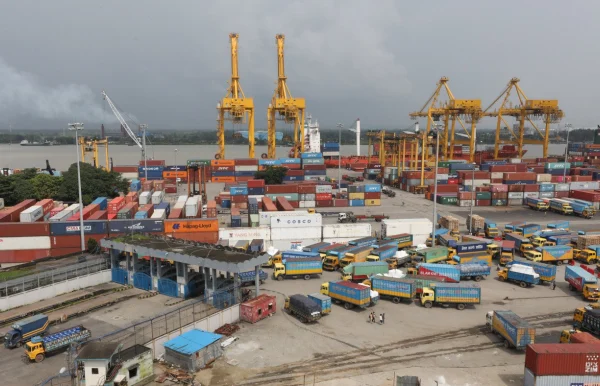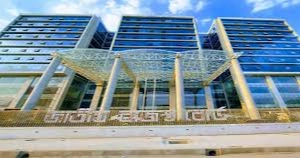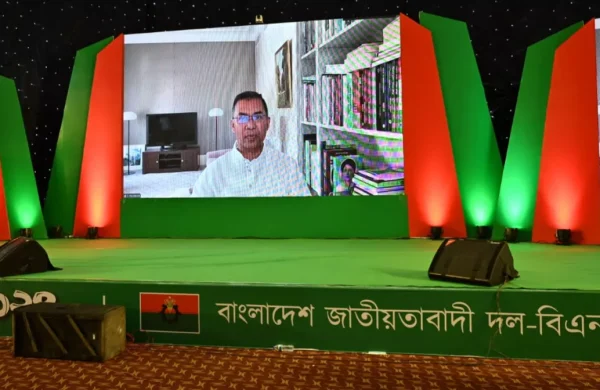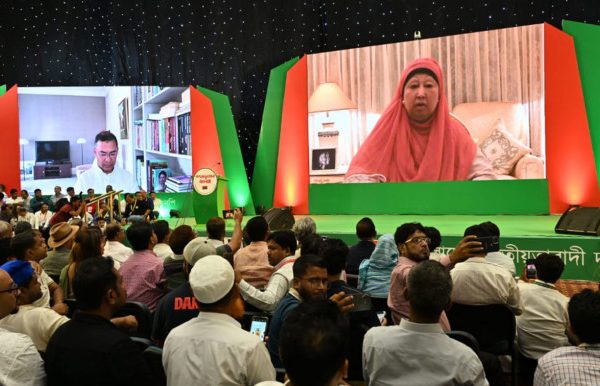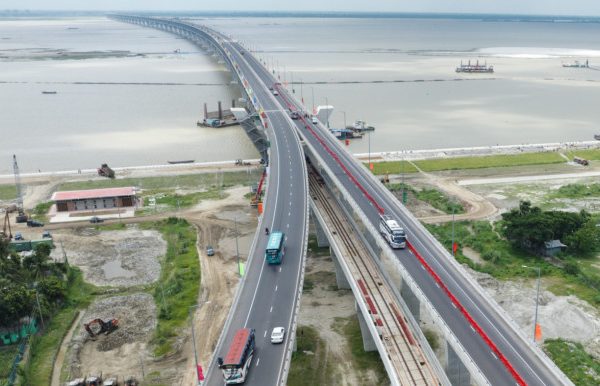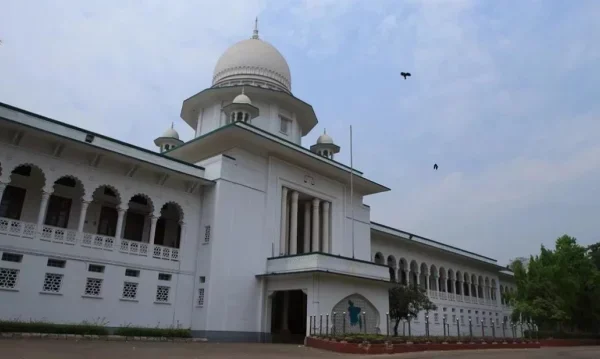Saudi firm to start operation on Tuesday
- Update Time : Monday, June 10, 2024

TDS Desk:
Operation at the much-anticipated Patenga Container Terminal (PCT) in Chattogram port by the foreign firm engaged for the first time is going to start on Tuesday formally.
With this, the concept of the landlord model is being established in port management of the country and the premier seaport is going to get a terminal having four jetties after around 15 years.
Landlord ports are ports where the port authority owns only the basic infrastructure, leasing it out to operators, mostly on a long-term concession basis, while retaining all regulatory functions (directly controlling strategic port activities and supervising commercial operations).
Red Sea Gateway Terminal International (RSGTI), a Saudi firm, will launch the activities by handling the first container vessel “Maersk Davao” at its jetty.
Though operation at the contemporary full-fledged and self-dependent terminal was supposed to begin in April this year, it was delayed due to obtaining permissions from different agencies.
The National Board of Revenue (NBR) gave interim permission to start operation at the terminal on Tuesday.
The NBR in a letter said the interim permission, which is subject to compliance with customs-related legal obligations and formalities to facilitate import-export trade, reduce vessel congestion, and costs and time associated with the transportation of goods, was given to the RSGT Bangladesh Limited for introducing the operational activities under the direct supervision of the Chattogram Port Authority (CPA).
CPA Secretary Omar Faruk told the Reporters that the NBR permitted eight conditions.
The vessel “Maersk Davao” would be berthed at the Chittagong Container Terminal for offloading of some containers, he said.
Later, the vessel will be taken to the PCT on Monday afternoon or Tuesday morning. The Saudi firm will start operation formally with handling the vessel on Tuesday, said the secretary.
Initially, the geared vessel will be allowed at the PCT while the firm has brought some of the equipment to facilitate the loading and unloading of goods there, Faruk stated. The conditions given by the NBR include ensuring all logistics and facilities for connectivity between the PCT and ASYCUDA World, carrying out official activities of the customs authorities before starting the operational activities, and physical examination of all off-dock and EPZ-bound containers until installing the scanners, said sources familiar with the project.
They said after launching the operation, the terminal will enhance the total handling capacity of the seaport by 17% annually, expediting the country’s export and import business to a larger extent.
The appointment of a foreign firm for the first time to operate a port terminal in the country also signals a surge in confidence from foreign investors in the nation’s booming future, they said.
Work on the terminal was completed in June 2022 and a 22-year deal with the Saudi firm RSGTI was signed to operate the terminal under a government-to-government framework by the Private Public Partnership Authority on 5 December last year.
During the two-and-a-half-year period to be required for the delivery and installation of the sophisticated equipment for the terminal, it will accommodate geared vessels with cranes. Following the installation of the equipment, the terminal will then facilitate the berthing of gearless vessels.
Project officials said the terminal is capable of handling five lakh Twenty Equivalent Unit (TEU) containers per year, in addition to the existing 32 lakh TEUs. Moreover, a 16-acre area near the Rubi Cement Factory will be used as the backup yard for the terminal. It will increase the total handling capacity of the terminal to 7-7.5 lakh TEUs per year.
Besides, the terminal will help reduce the turnaround time of vessels at the outer anchorage of the port as it will allow vessels with 10.5-metre draft and 190-metre length, against the highest 10-metre draft at the existing jetties.
Developed on 26 acres of land near the Chattogram Dry Dock and Chattogram Boat Club in the city’s Patenga, the terminal will be able to handle three container ships at a time while there will be facilities for offloading liquid cargo at a separate dolphin jetty.
Bangladesh Army’s 34 Engineering Construction Brigade implemented the project approved by the government on 13 June 2017. The deadline for implementation of the project at an estimated cost of Tk1,868 crore from the port’s fund was set for December 2019.
However, a revised Development Project Pro forma was approved later and the entire work was completed in June 2022 year at Tk1,147 crore, after dropping some components, including procurement of equipment for the terminal.


